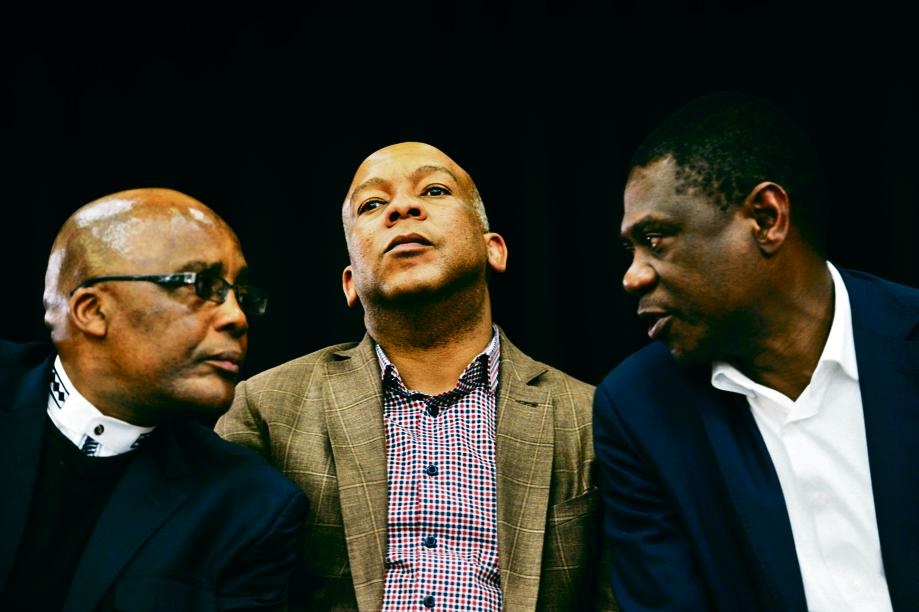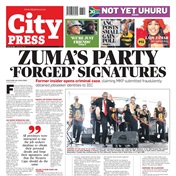
ANC national executive committee (NEC) members deployed to oversee provincial matters in Gauteng have admitted that they failed to unify factions in the Tshwane metro, which led to violence and destruction of property.
The admission was made by Health Minister Aaron Motsoaledi, one of the NEC’s six deployees to the province, this week.
“For now, yes, I can say we failed in as far as factionalism is concerned, but not from lack of trying as people believe we have not done anything.
“I have spent many sleepless nights in meetings with leaders in the region until the early hours of the morning, listening to the two groups,” Motsoaledi told City Press.
Motsoaledi detailed how both factions – those of outgoing mayor Kgosientso Ramokgopa and his deputy, Mapiti Matsena – frustrated the national and provincial leadership led by the NEC’s Paul Mashatile, who invested hours in marathon meetings intended to resolve the impasse about the mayoral candidature.
But the intervention yielded no result as several meetings were adjourned, with members leaving more confused than when they went in.
“At the end, you sit there and you can’t make head nor tail of it. This one accusing the next one, and the other one who is being accused coming with a venomous accusation against the accuser, but with equal strength ... and they are all very eloquent,” he said.
“You know these people are fighting, but you don’t actually know what it is all about,” he added.
Motsoaledi said what was puzzling was that both Ramokgopa and Mapiti, whom he referred to as “the protagonists”, were at war, despite the fact that they were “comrades in arms” at the 2011 regional conference. This is where they were elected chair and deputy.
So bad were things that each side accused the other of being evil, and each swore and promised to deal with the other.
Motsoaledi said ANC deployees to the province realised they were “none the wiser” in this whole saga. He recalled a statement from an ANC regional executive committee member describing the bitter battle as having nothing to do with politics, but rather “bread and butter issues”.
Motsoaledi said this showed he was correct in saying, when the name of Thoko Didiza was recommended, that tribalism was simply smoke and mirrors.
Both Ramokgopa and Mapiti have publicly denied they were at war with each other. Last year, the ANC national general council at Gallagher Estate in Midrand, Johannesburg, resolved to bring an end to the issue of attacks within the party, but this has remained a headache for the party leadership.
What Motsoaledi and his team discovered while they tried to dampen the fires in Tshwane as the violence escalated was that some municipal employees believed they would lose their jobs if a new mayor came in.
Motsoaledi spoke of a young woman who was honest enough to say that she came to the ANC only because of Ramokgopa, and that she believed life would be difficult without him. Some people thought they would be forced to forgo the jobs they secured through the Expanded Public Works Programme, but this was not true.
It was believed that Didiza would be neutral in dealing with sensitive issues, including jobs. But if the region failed to respect ANC interventions, it would risk being dissolved by the party.
“Usually in the ANC, when you reach a situation where you can no longer resolve the problem, you finally disband the structure,” said Motsoaledi.
He said the ANC could not have replaced Ramokgopa like it did in Nelson Mandela Bay when it brought in Danny Jordaan, because service delivery in the City of Tshwane had not collapsed or come to a standstill.
“Ramokgopa was delivering. You can’t wrong him for delivering services to the people as part of his mayoral work. The problem is there was a political war going on, which we thought we could solve politically.”
Motsoaledi denied that the lobbying for Didiza started a long time ago. He said he recalled President Jacob Zuma saying: “We might take people from national level and deploy them at local level.”
However, the president didn’t say who it might be or where it might happen. Motsoaledi emphasised that if people spoke about it privately, those conversations took place outside of the structures of the ANC.
TALK TO US
How should the ANC go about ending the infighting in Tshwane?
SMS us on 35697 using the keyword UNIFY and tell us what you think. Please include your name and province. SMSes cost R1.50




 Publications
Publications
 Partners
Partners








